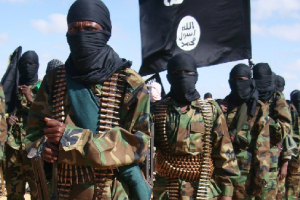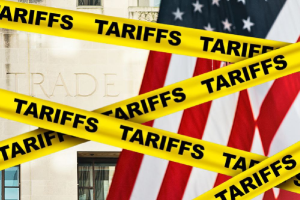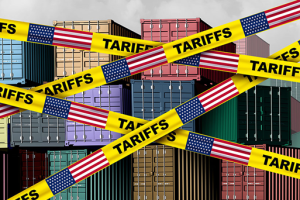
BY EYUEL KIFLU
The clash between the army of Sudan and the Rapid Support Forces (RSF) paramilitary group has already besieged the capital, Khartoum despite the strings of broken ceasefires. Hundreds of civilians have been killed by gunfire and drone attacks with thousands injured. Not only Sudanese but also other nationals including Ethiopians have been affected by the tense situation in the country. Civilians have been flocking to neighboring countries resulting in dire humanitarian situation.
Dozens of countries have been racing against time to evacuate their citizens in all possible ways. In this ongoing war between the two parties, many international and regional organizations have been trying to call on both sides to lay down their weapons and come to the negotiating table. There is an increased fear that if the clash continues, the crisis will morph into a regional problem. To avoid further carnage and turn the tide, many actors have been trying to mediate the warring parties. Ethiopia has been at the forefront to mediate the conflicting parties drawing its own experience in resolving internal problems through negotiation. In fact, the Pretoria peace deal that materialized in Ethiopia has been successful in its implementation and remains to have far-reaching implications in the Horn of Africa region.
The peace and stability in Ethiopia have positive implications for the entire region, as Ethiopia has a “central role in the region,” said UN Secretary-General, Antonio Guterres. Ethiopian Foreign State Minister, Ambassador Misganu Arega has welcomed and held a productive meeting with the United Nations Secretary-General Antonio Guterres during his transit at the Addis Ababa Bole International Airport, according to a local media report. During the occasion, the Secretary-General expressed his delight that Ethiopia has solved the northern conflict and is making progress.
He emphasized that peace and stability in Ethiopia have positive implications for the entire region, as Ethiopia has a “central role in the region.” Meanwhile, Ethiopia since the outbreak of the conflict has been making extensive efforts to mediate the Sudanese warring faction in addition to helping evacuation of stranded civilians. The Ethiopian government later announced that it would ship 50 thousand quintals of wheat to Sudan. The support that will be provided through “Ethiopia Aid” will also include medicines, said Prime Minister Abiy Ahmed.
He mentioned that Ethiopia is interested in negotiating with the warring parties, apart from providing the support that is currently needed for the people of Sudan. He called for Sudanese army chief General Al Burhan and Rapid Action Force (RSF) Commander General Hamdan Dagalo to give priority to the discussion in the acknowledging event for the parties who brought the northern Ethiopian conflict to a negotiated end. Ethiopia’s firm position is that Sudan should learn from the former northern Ethiopia crises and come to the dialogue table to solve their problems through discussion. The Ethiopian government will stand with the Sudanese brothers and continue its previous support for them.
In an exclusive interview with EPA, Samuel Tefera (Ph.D.) Addis Ababa University African and Asian Studies and Research Center Assistant Professor said that various domestic crises and external interventions have left most of the region unable to find peace. The current clash in Sudan is contributing to instability in the region. The main country in the conflict-affected area is Ethiopia. The clash also opens the door for arms smuggling into Ethiopia and surrounding countries. Ethiopia, which shares a long border with Sudan, has several hostile factions trying to create an unstable Sudan to attack Ethiopia. And the mega projects of Ethiopia are there, so they want to attack them by making Sudan a bridge, he added.
Because the migrants flow to Ethiopia may cause conflict, instigators may enter the country posing as immigrants. Many are maybe waiting for this opportunity to enter Ethiopia and undertake their secret purpose of distraction. By preparing a strong border security policy, the country must take the area seriously and establish diplomatic relations with both parties to bring peace to Sudan. Also, the AU and IGAD have a heavy task in ensuring Sudan’s peace and security. The threat is that if the long-running conflict continues, it will lead to a major crisis in the region, he explained.
The Sudan crisis has been ongoing for the last two years in protest against the military government. Different international actors are trying to extend their hands into Sudan’s internal affairs to resolve the problems to return the civil government. Most of the opposition parties in Sudan accept the process of returning the government system to civil governance. However, this agreement does not seem acceptable to the RSF, and the war broke out in Khartoum, said Prof. Adem Kemil, a researcher on Arab countries’ affairs on his part.
In an exclusive interview with The Ethiopian Herald, the researcher said that some war brokers are trying to create instability in the Horn. Ethiopia pledged to regain Sudan’s peace because their peace meant peace for Ethiopia.
Moreover, Ethiopia must closely monitor the situation in Sudan. The instability in Sudan is not good for Ethiopia or the entire region. So, Ethiopia must work to support the Sudanese people regain peace. Ethiopia has been maintaining good diplomatic relations with its African brothers and supporting Sudan to find a peaceful resolution to its conflicts. Ethiopia has done a lot for the peace and stability of Sudan, and all Sudanese are well aware of this positive gesture. And it is their strong belief that Addis Ababa will maintain its good diplomatic relations as before and work to restore tranquility in their country, Prof. Adem stated.
False information is being disseminated about Ethiopia’s stance; I thought that most Sudanese knew the truth. But Ethiopia should put in place different measures to alleviate any misunderstandings or expose false claims,” he added. The impacts of the current Sudan conflict on the region would depend on the severity and duration of the conflict, as well as the responses of neighboring countries and the international community.
THE ETHIOPIAN HERALD WEDNESDAY 10 MAY 2023





